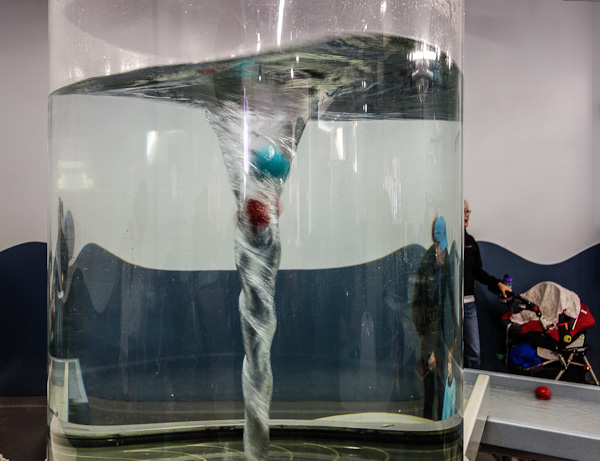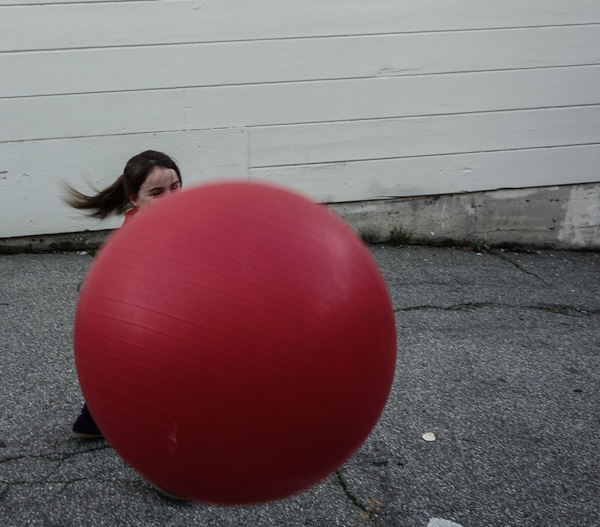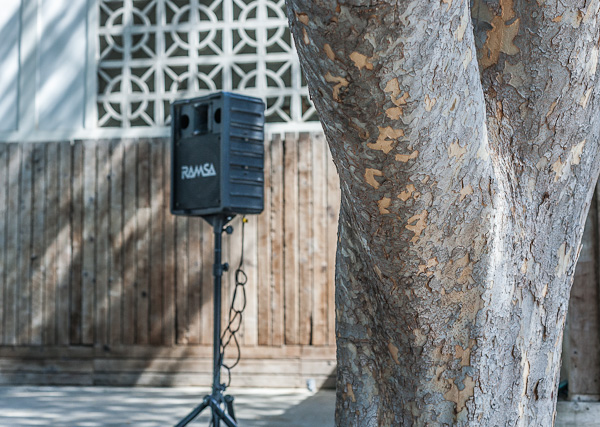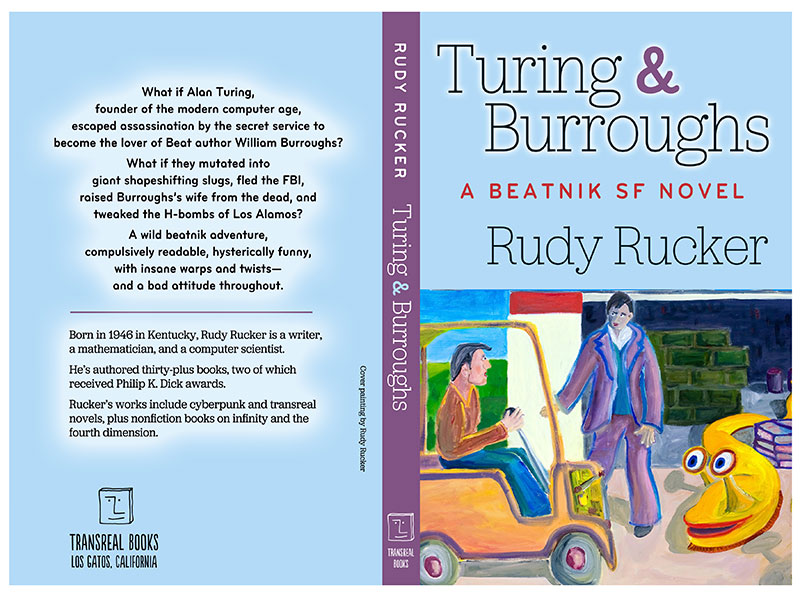Today I’m reprinting an email interview that Kelly Burnette of Lakeland, Florida, did with me in October,in order to run it in the first issue of the Duckter Yezno’s webzine—which went public this week, and has a lot of other qrude pieces in it.
Kelly Burnette’s incisive interview centers around my recent novel Turing & Burroughs.
As usual I’ve illustrated this post with “randomly” but perhaps “synchronistically linked” photos from my recent reality gleanings.
The numbers on the questions and answers in the interview relate to my ongoing practice of accumulating all of my email interviews into one giant interview that I keep online as a PDF document called “All the Interviews.”
Here comes the Duckter Yezno’s bus, climb aboard!

Q 368. Your entire family seems to be academically or artistically inclined. You say that you discovered Burroughs, for instance, in a copy of the Evergreen Review that belonged to your older brother. Can you tell us a little about how your family life shaped your interests, what you do today?
A 368. My brother and I grew up in the 1950s in the countryside near Louisville, Kentucky, and our chief form of entertainment was reading books. Our mother encouraged us to read—every Christmas morning there would be a circle of books around the tree, and a fair number of these were science-fiction. A lot of Heinlein. Not that Mom was an SF fan at all, but she’d get advice from the book shop lady. My father had a wood business and then he became an Episcopal priest. He was an independent-minded man, and he encouraged my brother and me to be intellectuals. I met my wife at Swarthmore College; among her attractions were her cultured, intelligent and artistic qualities. Our first conversation involved Pop Art and Andy Warhol. All three of our children are creative types, and all three are self-employed. We have a family tradition of not being cogs in the Big Machine—although admittedly my day job for about thirty years as being a state university professor.

[Right before falling into a Wyoming lake and ruining my camera.]
Q 369. I was really happy to hear you weren’t planning on founding a religion to dominate the world! Oh wait! That might well be a much better world. But to jump ahead a little…Mysticism is a tricky concept. On the one hand, it could just be a fancy name for certain kinds of mental experience. On the other, it could be actual transcendence. You’re fascinated with the idea. Can you talk about your take on mysticism within the context of your novel Turing & Burroughs? Do you believe we have a soul?
A 369. I’m agnostic on the soul question. Maybe we have an afterlife, maybe we don’t. Keep in mind that, whatever its literary qualities, Turing & Burroughs is a science-fiction novel, so I don’t necessarily think that everything in it is true. For the purposes of the story it was useful to suppose that dead people could in fact reappear as ghosts animated by immortal souls. My novels White Light and Jim and the Flims touched upon SFictional afterworlds as well. Mysticism is much less intense type of religious belief. It hinges on the notion that you can get a direct perception of the cosmos as a One. An inner light, a big aha, a cozy goo that you can merge into. If you pay close attention to your mental states, this is almost obvious. All is One, the One is ineffable, we can have a direct perception of the One, and Love is all you need. The secrets of the spoken are shouted in the streets. But esoteric philosophy isn’t something you want to be talking about in a novel. A novel is supposed to be fun. It’s better to talk about ghosts.

Q 370. I noticed some very nice, subtle character descriptions in Turing & Burroughs that reflected the individual’s personality well. For example, when you first describe Alan’s love for vacuum tubes, that definitely had a phallic ring to it. It was sexual subtext on par with D.H. Lawrence. How do you think your prose has improved over the years?
A 370. I don’t really see vacuum tubes as penises, but I guess you could. For people of my or Alan Turing’s generations, vacuum tubes were a magical part of daily life. They glow, they get warm, they’re made of glass, they have lots of little doodads inside them, a zillion weird pins on the bottom, and you used to be able to take them to the drugstore and plug them into a testing machine, possibly buying a replacement tube in a little cardboard box. Even now when I look at a city like New York or Tokyo from the air, I’m reminded of the inside of the vacuum tube radio I had by my bed as a boy. Regarding my prose, I’d like to think that it’s still improving—I polish it a little more than I used to. Five or ten years ago, I read John Gardner’s classic how-to book The Art of Fiction, and it had a good effect on me. He talks about paying attention to the spoken rhythms of your text, and about working on the prose at various levels: word, sentence, action, paragraph, chapter, and so on.

Q 371. How much fun was it for you to write in Burroughs’ voice and did you produce it rather naturally (as he’s such an influence), or did you have to work on it, refine it? The letters were a blast to read. Especially the transition from the letter to Jack to the letter to his parents. That was very funny.
A 371. I’ve read Burroughs’s letters many times, particularly the ones in the Yage Letters book, and the ones written while he was in Tangier. While I was writing my pastiches of his letters, I was looking through the actual letters, keeping that voice fresh in my mind. As I’ve mentioned elsewhere, I find Burroughs’s bad attitude to be appealing. He’s always been such a breath of fresh air in the face of propriety and social constriction. I once got to hear Burroughs give a seminar talk at the Naropa Institute in Boulder, Colorado, and I asked him if he laughed while he was writing. “I might,” he said. “If it’s funny.” I laughed quite a bit while writing my Burroughs routines. But it got serious and heavy when it was time to deal with his slain wife.

Q 372. Road trips are significant for two reasons: they’re symbolic of a journey of self-discovery and they’re almost immediately identifiable with the Beats. Alan’s revelations on the road were significant. Did Alan portend that he was becoming a true Christ typology as opposed to superficially saying it one night in Louisiana? Or ”“ can you take us through the course of Alan’s self-discovery while on the road? When did he realize that his greatest gift was sacrifice?
A 372. You could compare Alan to Christ, given that, at the end of Turing & Burroughs, he sacrifices himself for the good of mankind. And early in the book, Alan does in passing think of himself as Christ with his Apostles. But maybe that was a red herring on my part or even a false step. Really I don’t think Turing is coming at his adventures in terms of a Christian framework. The Christians don’t own the redemption myth. It’s a deeper archetype. More like something from Joseph Campbell’s The Hero With A Thousand Faces. Alan has brought a potentially destructive elixir into the world, and he does something about it by transcending to a higher level of existence. He doesn’t really want to die, it’s more that he’s cornered in a certain situation and makes the best of it—by using the SF toolkit that he’s developed as part of his personal growth during the flow of the novel.

Q 373. Is telepathy a correlative for higher consciousness? And is the next step of evolution a conscious one?
A 373. Telepathy is a concept that’s fascinated me for as long as I can remember. I call it teep in my novels. These days I don’t see teep as being at all like a normal conversation. It’s more that you and someone else get onto the same wavelength. Like a talk in bed with a lover, or a deep rap with a pal, or some heavy conceptual play with a mentor. And an outsider is, like, “So what did they tell you?” And maybe you can’t verbalize the details, maybe it’s easier to talk about how having had the conversation makes you feel. Telepathy represents the dream of being understood. Telepathy relates to the notion of merging your personality into the broader world, and this is, once again, an aspect of a higher mystical consciousness. It’s interesting to wonder, as you suggest, if telepathy is an evolutionary step that we’re coming up on. Kind of a Childhood’s End scenario. It’s an interesting SFictional trope, but in reality I don’t actually see humanity as making an abrupt change. I suspect that we’ll have a whole spectrum of personality types, and some will be evolving towards higher consciousness and some will be devolving away from it just as fast. “The squares you will always have with you,” to paraphrase our Lord.

Q 374. Was the Turing & Burroughs character Susan Green based on anyone real? Are you yourself into musique concrète?
A 374. Even though I call myself a transrealist, I don’t always base my characters on actual people. Susan Green was more like a collage of various women I’ve known. I was looking for a strong and idiosyncratic female character to counterbalance all the men in Turing & Burroughs. A woman who’s every bit as outspoken and independent as any man. I recalled that Burroughs was very interested in the idea of taping ambient sounds and collaging them together, and I thought it would interesting to have a woman composer who’s actually doing this. For research, I read the Tara Rodgers compilation of interviews, Pink Noises: Women on Electronic Music and Sound. I’m not in fact a big fan of electronic music, although I do like the idea of it. I made a point of watching the classic SF movie Forbidden Planet, which has a great electronic soundtrack created by Bebe Barron and her husband Louis.

Q 375. Can you tell us a little bit about why you chose to allude to Henry Kuttner and C. L. Moore’s novel Fury? Was it simply because Burroughs also used it in The Ticket That Exploded? You remark that it’s a seminal urtext. What’s the significance for you here?
A 375. Okay, this is all about the Happy Cloak. It’s a symbiotic or parasitic alien being, a bit like a coat or a scarf, and it plugs into the nerves in your neck and hangs down your back, and you get into an altered and somewhat ecstatic state of consciousness. Kuttner’s 1947 novel introduces this notion, and Burroughs read the novel during one of his drug-kicking treatments in a Tangier clinic. Later Burroughs incorporated material about the Happy Cloak into in his 1962 novel, The Ticket That Exploded. As a teenager I also read Brian Aldiss’s 1962 fascinating novel, Hothouse, where a morel fungus attaches itself to a character’s neck and begins helping him while controlling him. I always loved that expression “Happy Cloak” because of the contrast between the bland, childish name, and the rather sinister nature of the being. I included a Happy Cloak in my Software, both as an homage to Burroughs and because it was very useful thing to have. A Happy Cloak made of computational plastic attaches itself to my character Sta-Hi’s neck on the Moon, and wraps itself around him to function as a space-suit. Happy Cloaks play a part in the later volumes on the Ware Tetralogy as well. I’m always looking for chances to talk about them.

Q 376. Is there any one book of yours that you’d really love to see made into a film? Cronenberg comes to mind, but who do you picture directing your film?
A 376. Oh, man—any of my books, any director. The Hacker and the Ants would be good as a retro 1980s computer scene movie. The Wares could be epic. Hollywood came close to filming them a couple of times. Master of Space and Time would be a fun movie, for awhile Michel Gondry was all set to do do that. Mathematicians in Love would be very cool, with the surfers and the San Francisco scenes and the flying mollusks. The Hollow Earth could become a huge, big budget production, complete with Edgar Allan Poe, giant sea cucumbers, and an intense racial theme. Turing & Burroughs itself would be a good film, given that there’s some interest in movies about the Beats just now. As for directors, Cronenberg did a great job on Naked Lunch, but I’m guessing it would be a younger person who’d want to take on one of my books. I used to think that sooner or later the mass market would catch up with me. But maybe I’m on a divergent timeline. And that’s okay too. I’m glad I got to write my books.









